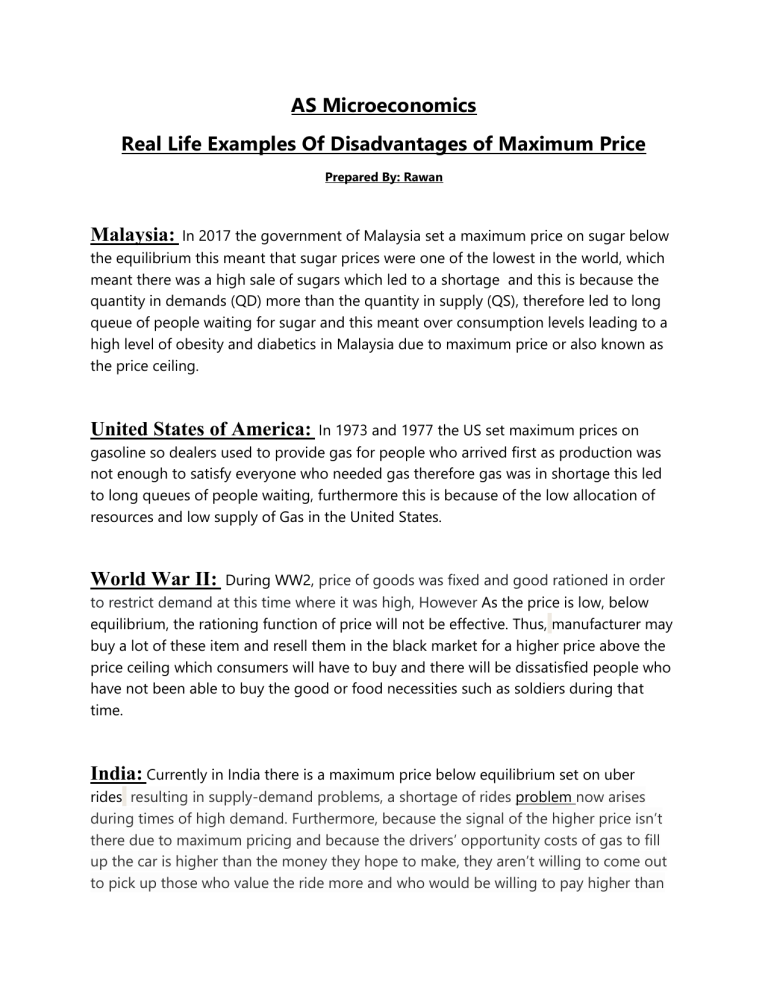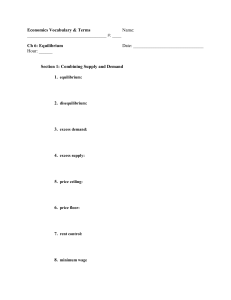
AS Microeconomics Real Life Examples Of Disadvantages of Maximum Price Prepared By: Rawan Malaysia: In 2017 the government of Malaysia set a maximum price on sugar below the equilibrium this meant that sugar prices were one of the lowest in the world, which meant there was a high sale of sugars which led to a shortage and this is because the quantity in demands (QD) more than the quantity in supply (QS), therefore led to long queue of people waiting for sugar and this meant over consumption levels leading to a high level of obesity and diabetics in Malaysia due to maximum price or also known as the price ceiling. United States of America: In 1973 and 1977 the US set maximum prices on gasoline so dealers used to provide gas for people who arrived first as production was not enough to satisfy everyone who needed gas therefore gas was in shortage this led to long queues of people waiting, furthermore this is because of the low allocation of resources and low supply of Gas in the United States. World War II: During WW2, price of goods was fixed and good rationed in order to restrict demand at this time where it was high, However As the price is low, below equilibrium, the rationing function of price will not be effective. Thus, manufacturer may buy a lot of these item and resell them in the black market for a higher price above the price ceiling which consumers will have to buy and there will be dissatisfied people who have not been able to buy the good or food necessities such as soldiers during that time. India: Currently in India there is a maximum price below equilibrium set on uber rides resulting in supply-demand problems, a shortage of rides problem now arises during times of high demand. Furthermore, because the signal of the higher price isn’t there due to maximum pricing and because the drivers’ opportunity costs of gas to fill up the car is higher than the money they hope to make, they aren’t willing to come out to pick up those who value the ride more and who would be willing to pay higher than price set by the Indian government, It also leads to a decrease in consumer surplus because those who want rides and are willing to pay the higher prices can’t get rides.

